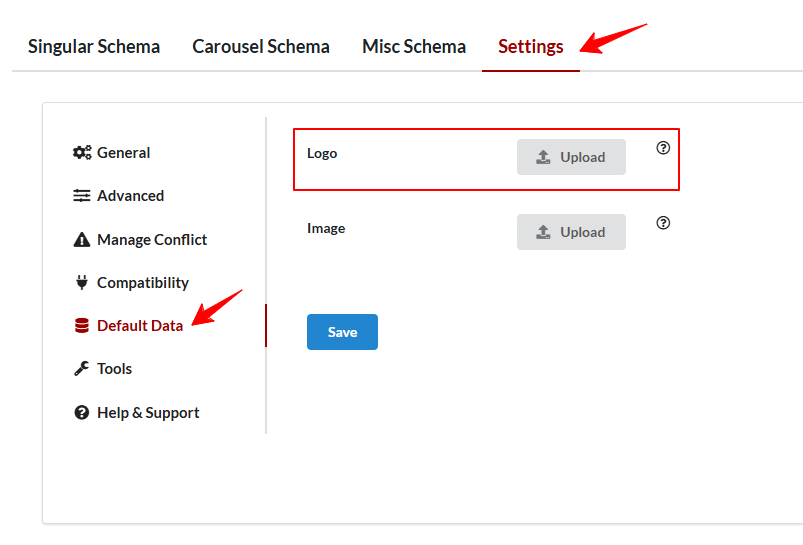How To Set Up Default Data In Schema Package To Resolve Validation Errors Or Warnings
If you’re encountering validation errors or warnings in your schema markup due to missing images or logos, the Schema Package plugin provides a simple solution through its Default Data settings.
🛠 This feature ensures schema markup is complete, even when a post or page doesn’t have all required data.
🔎 What Is Default Data?
Default Data is fallback content used in your schema markup when required fields (like logo or image) are missing on individual posts or pages. It helps eliminate validation warnings in Google’s Rich Results Test or Schema.org Validator.
⚙️ How to Configure Default Data
1. Upload a Default Logo
- Click the Upload Logo button.
- Choose a logo that meets Google’s logo guidelines.
- This logo will be used in schema types like
Organization,LocalBusiness, etc., if not set individually.

2. Upload a Default Image
- Click the Upload Image button.
- This image will appear in schema types like
Article,Product,Recipe, etc., when a featured image or custom image is not found on the current page.

✅ Best Practices
While default data prevents errors, it is not a substitute for properly filling schema fields per post or page.
Here’s what we recommend:
- Always set featured images where applicable.
- Rely on default data only when dynamic data is unavailable.
🚫 Potential Issues
Using the same default image for many pages may:
- Create duplicate rich results
- Reduce content uniqueness
- Impact your appearance in search results
🧪 Example
Scenario:
You publish a blog post with no featured image.
Result:
Schema Package automatically includes the default image in the Article schema to prevent validation errors.
📝 Summary Table
| Field | Purpose |
|---|---|
| Default Logo | Used in schemas like Organization, LocalBusiness, etc. when logo is missing |
| Default Image | Used in schemas like Article, Product, FAQ, etc. when image is missing |
🔚 Final Thoughts
Setting up Default Data in Schema Package is a great way to prevent missing field errors in your schema markup. But for maximum SEO value, it’s always best to provide schema-specific content on each post or page.
💡 Fix issues at the post level when possible. Use Default Data only as a backup solution.
If you still have questions, visit our
📚 Knowledge Base or
📩 Contact Us